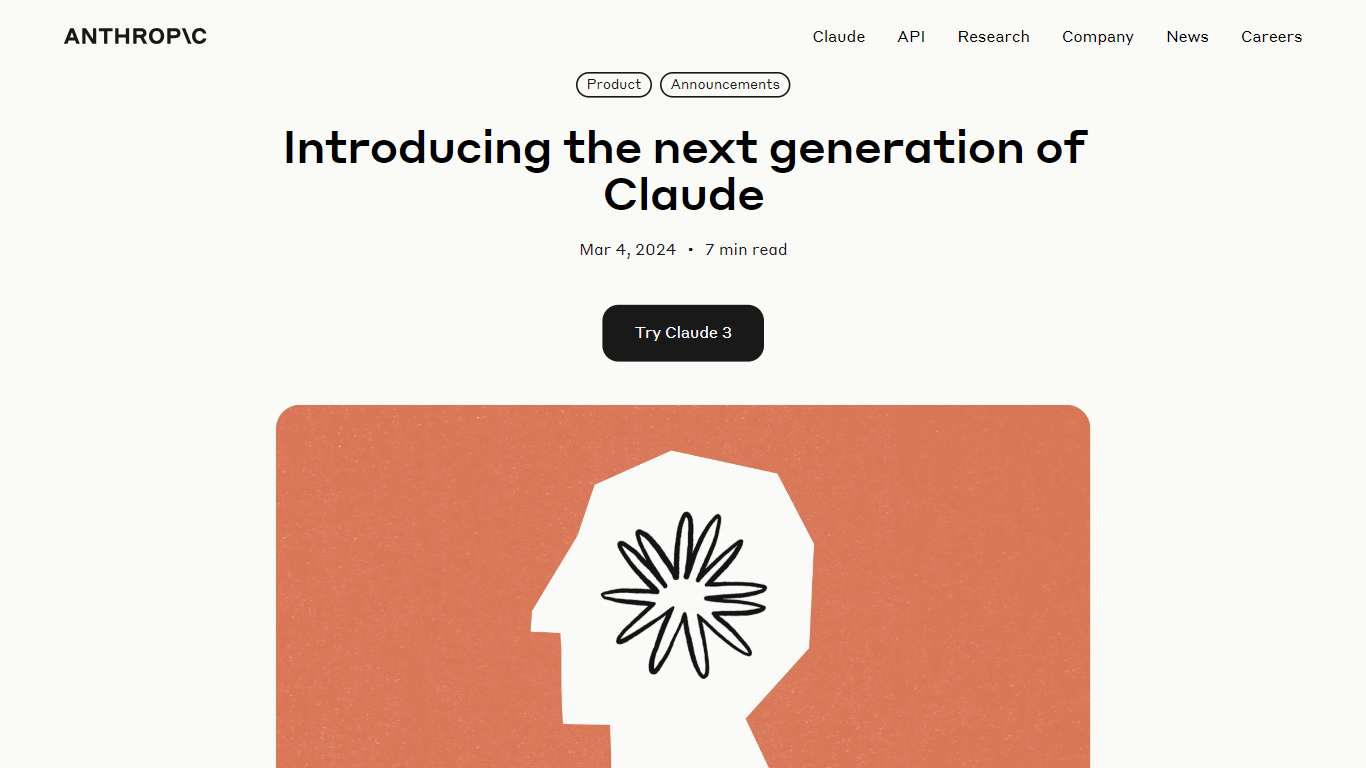RLAMA vs Claude 3 \ Anthropic
Explore the showdown between RLAMA vs Claude 3 \ Anthropic and find out which AI Large Language Model (LLM) tool wins. We analyze upvotes, features, reviews, pricing, alternatives, and more.
In a face-off between RLAMA and Claude 3 \ Anthropic, which one takes the crown?
When we contrast RLAMA with Claude 3 \ Anthropic, both of which are exceptional AI-operated large language model (llm) tools, and place them side by side, we can spot several crucial similarities and divergences. In the race for upvotes, Claude 3 \ Anthropic takes the trophy. Claude 3 \ Anthropic has garnered 7 upvotes, and RLAMA has garnered 6 upvotes.
Want to flip the script? Upvote your favorite tool and change the game!
RLAMA

What is RLAMA?
RLAMA is a powerful document question-answering tool designed to connect seamlessly with local Ollama models. It allows users to create, manage, and interact with Retrieval-Augmented Generation (RAG) systems tailored specifically for their documentation needs. The core functionality of RLAMA lies in its ability to provide advanced features that go beyond basic RAG, enabling users to integrate documents effortlessly into their workflows. This makes it an ideal solution for developers and organizations looking to enhance their document management processes.
The target audience for RLAMA includes developers, researchers, and organizations that require efficient document handling and question-answering capabilities. With over 2000 developers already choosing RLAMA, it has proven to be a reliable tool in the market. The unique value proposition of RLAMA is its open-source nature, which allows users to customize and adapt the tool to their specific requirements without incurring high costs associated with custom RAG development.
One of the key differentiators of RLAMA is its offline-first approach, ensuring that all processing is done locally without sending data to external servers. This feature not only enhances privacy but also improves performance by reducing latency. Additionally, RLAMA supports multiple document formats, including PDFs, Markdown, and text files, making it versatile for various use cases. The intelligent chunking feature further optimizes context retrieval, ensuring that users get the most relevant information from their documents.
Technical implementation details highlight that RLAMA is available for macOS, Linux, and Windows, making it accessible to a wide range of users. The tool also offers a visual RAG builder, allowing users to create powerful RAG systems in minutes without the need for coding. This intuitive interface is designed to make RAG creation accessible to everyone, regardless of their technical background. With RLAMA, users can expect to save significant development time and costs while building robust document-based question-answering systems.
Claude 3 \ Anthropic

What is Claude 3 \ Anthropic?
Discover the future of artificial intelligence with the launch of the Claude 3 model family by Anthropic. This groundbreaking introduction ushers in a new era in cognitive computing capabilities. The family consists of three models — Claude 3 Haiku, Claude 3 Sonnet, and Claude 3 Opus — each offering varying levels of power to suit a diverse range of applications.
With breakthroughs in real-time processing, vision capabilities, and nuanced understanding, Claude 3 models are engineered to deliver near-human comprehension and sophisticated content creation.
Optimized for speed and accuracy, these models cater to tasks like task automation, sales automation, customer service, and much more. Designed with trust and safety in mind, Claude 3 maintains high standards of privacy and bias mitigation, ready to transform industries worldwide.
RLAMA Upvotes
Claude 3 \ Anthropic Upvotes
RLAMA Top Features
Simple Setup: Create and configure RAG systems with just a few commands and minimal setup, making it easy for anyone to get started quickly.
Multiple Document Formats: Supports various formats like PDFs, Markdown, and text files, allowing users to work with their preferred document types.
Offline First: Ensures 100% local processing with no data sent to external servers, enhancing privacy and security for sensitive information.
Intelligent Chunking: Automatically segments documents for optimal context retrieval, helping users find the most relevant answers efficiently.
Visual RAG Builder: Create powerful RAG systems visually in just 2 minutes without writing any code, making it accessible to all users.
Claude 3 \ Anthropic Top Features
Next-Generation AI Models: Introducing the state-of-the-art Claude 3 model family, including Haiku, Sonnet, and Opus.
Advanced Performance: Each model in the family is designed with increasing capabilities, offering a balance of intelligence, speed, and cost.
State-Of-The-Art Vision: The Claude 3 models come with the ability to process complex visual information comparable to human sight.
Enhanced Recall and Accuracy: Near-perfect recall on long context tasks and improved accuracy over previous models.
Responsible and Safe Design: Commitment to safety standards, including reduced biases and comprehensive risk mitigation approaches.
RLAMA Category
- Large Language Model (LLM)
Claude 3 \ Anthropic Category
- Large Language Model (LLM)
RLAMA Pricing Type
- Free
Claude 3 \ Anthropic Pricing Type
- Freemium
